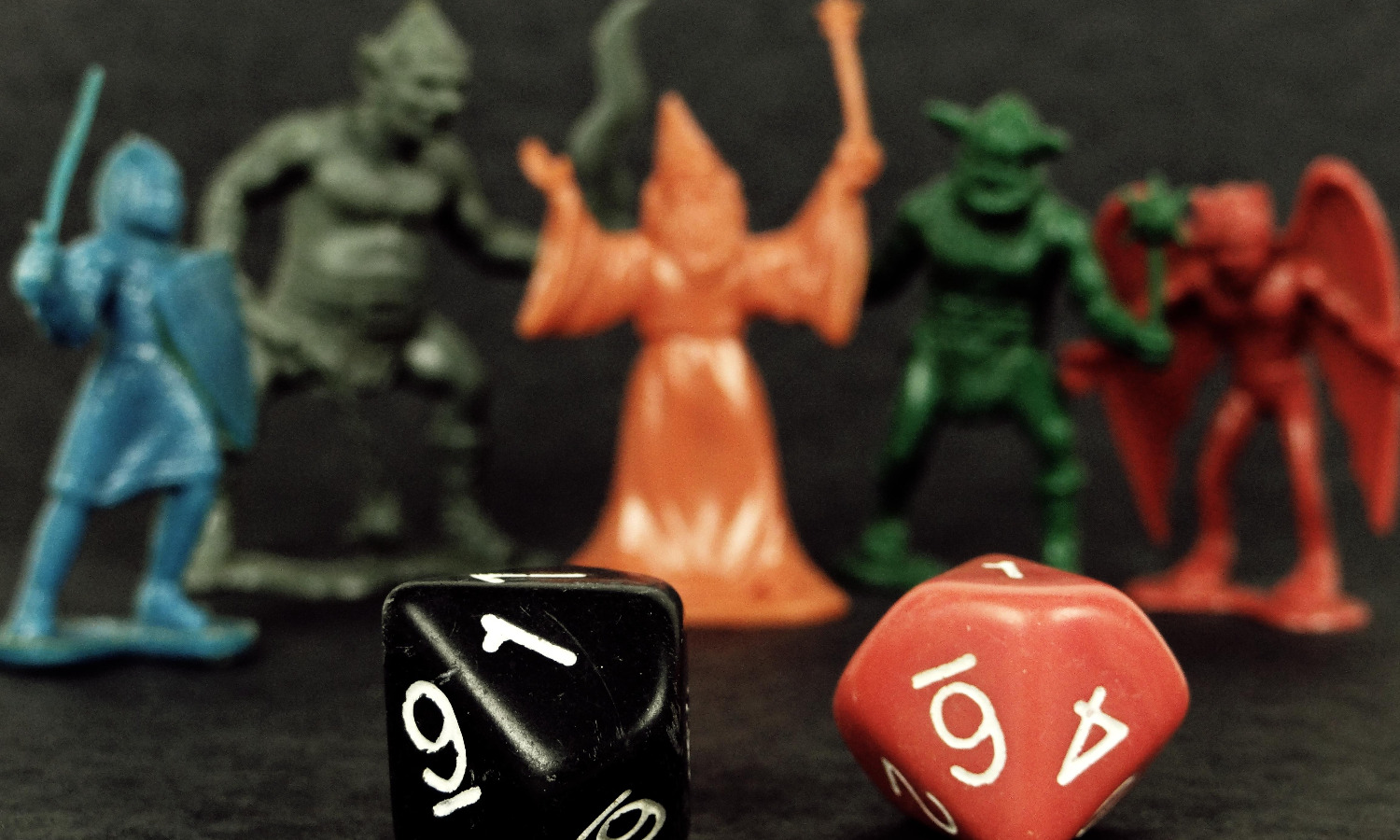
Adam Johns and I talk about how Wheelhouse Workshop "helps teens build social skills using tabletop role-playing games" all the time. We recently spoke at Emerald City Comicon for the second time about how we specifically use these types of games to help teens and adolescents become "more confident, creative, and socially capable." We’ve been facilitating games therapeutically for five years, we’ve spoken at conventions around the country and even taught a class to therapists about these games, and yet we still hear the question all the time and have trouble answering it.
Parents interested in our groups and referring therapists sometimes have a loose idea of how our groups are structured, but aren’t sure of the what their kids and clients will be experiencing in a Wheelhouse Workshop group, much less how they will benefit, and so I’ll be unpacking these explanations into a series of blog posts, starting today with the introduction to what makes a tabletop role-playing game different from other types of games and progressively focusing on the more specific benefits of these games and how Wheelhouse Workshop intentionally focuses on these benefits in our therapeutic groups.
What exactly is a "tabletop role-playing game?"
To be honest, we’ve struggled to find a concise and clear definition to explain exactly what we do. Sometimes we just invite parents or therapists to play with us. (We have one spot per quarter open for therapists to learn more about our groups. Contact us if you are interested!)
The best way to understand is to participate, of course, but for busy parents and therapists, we’ll start today by unpacking the term "tabletop role-playing game" one word at a time.
Tabletop
The term "tabletop" means that all of the players are seated around a table interacting with each other directly. An important distinction between tabletop games and other games such as electronic games or athletic sports is the interpersonal experience. There are no screens at Wheelhouse Workshop groups, because in order to build relationships and practice skills we must be present with each other in the same space, interacting verbally and nonverbally with other people.
Role-playing
What makes role-playing games different from other tabletop games is the focus on characters participating together in a story. In a role-playing game the players are creating and interacting with the world of the game as their character. When playing the game Monopoly, for example, players aren’t (usually) thinking about why the metal terrier wants to build a hotel on Broadway other than the rules of the game that let players know how they should be playing and what should be motivating them, and rarely do players think about what relationship the terrier has to the iron, or what tempestuous history the thimble shares with the top hat. In tabletop role-playing games and especially in Wheelhouse Workshop groups, players think about what motivates their characters and how their characters will set goals and make plans for accomplishing them.
The game is set in an open world that changes based on the decisions of the characters, so the decisions players make for their characters is reflected in the larger story. The characters played by the players are on a team working together to accomplish a goal. Think of the Fellowship of the Ring from The Lord of the Rings — a team of heroes bands together, despite their differences, to work toward a common goal.
Their character does not exist solely in their head, however. Their character’s specific background, skills, and abilities are recorded on a piece of paper that the player uses in the game. The amount the player portrays the character by role-playing (talking in a unique voice, etc.) is up to the player themself, and we encourage our players to take the risk to play as their character when possible.
Game
Game theorists have been trying to define what makes a game a game for centuries. Though fairly self explanatory on the surface and deceptively complex upon further inspection, most game theorists agree that games have rules and structure, goals, and that players want to keep playing them. Game designers design different tabletop role-playing systems to provide structures and rules to keep the game somewhat predictable and provide players an opportunity to improve at them. Games are also supposed to be fun, which makes the players want to keep coming back. In a Wheelhouse Workshop group, we use modified rules from the game Dungeons and Dragons, which has been around in various formats since the 1970s. The game, like many other tabletop role-playing games, uses many-sided dice to determine the success of what a player is trying to do as their character, which provides both a structure and an unpredictability to the game.
Most games are competitive, and in tabletop role-playing games, the players are working together against the challenges created by someone taking the role of a "game master." In the case of Wheelhouse Workshop groups, the game master is a trained therapist and facilitator who structures the game to provide challenges specific to the players’ real world areas of social growth. (More on that in another post!)

Tabletop Role-Playing Games
There you have it. A tabletop role-playing game is "a fun and structured cooperative activity with predictable rules and an unpredictable outcomes that takes place directly with other people around a table, where players are playing as characters they create in an open, interactive, responsive world facilitated by a game master."
Whew!
Check back in the coming weeks for posts about what makes tabletop role-playing games beneficial for building social skills, and how Wheelhouse Workshop groups intentionally focus on these benefits.
What definitions do you use for tabletop role-playing games? Is there anything we missed? Please share with us, and keep the conversation going on our Facebook or Twitter!
[Ready to continue the journey? Click here for the next post, exploring the benefits of tabletop role-playing games.]